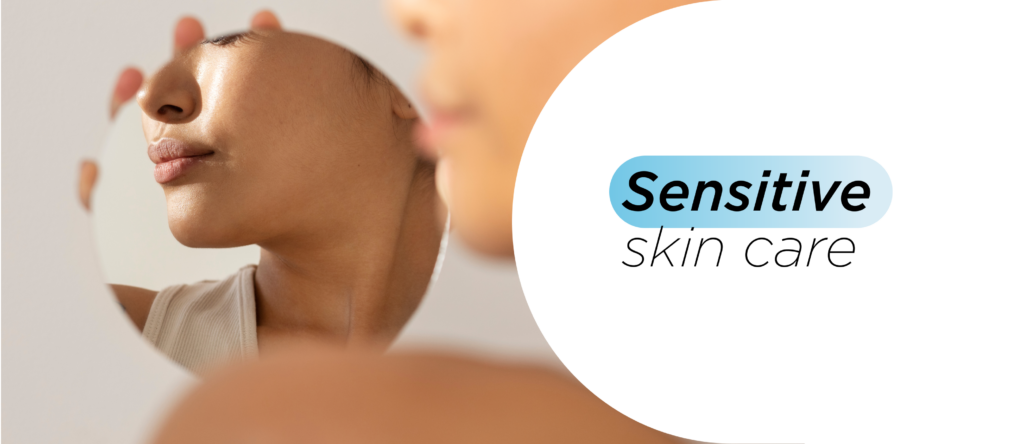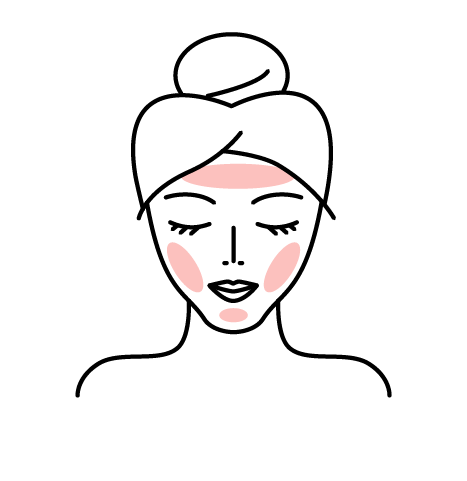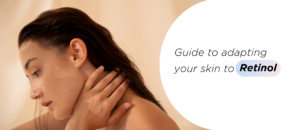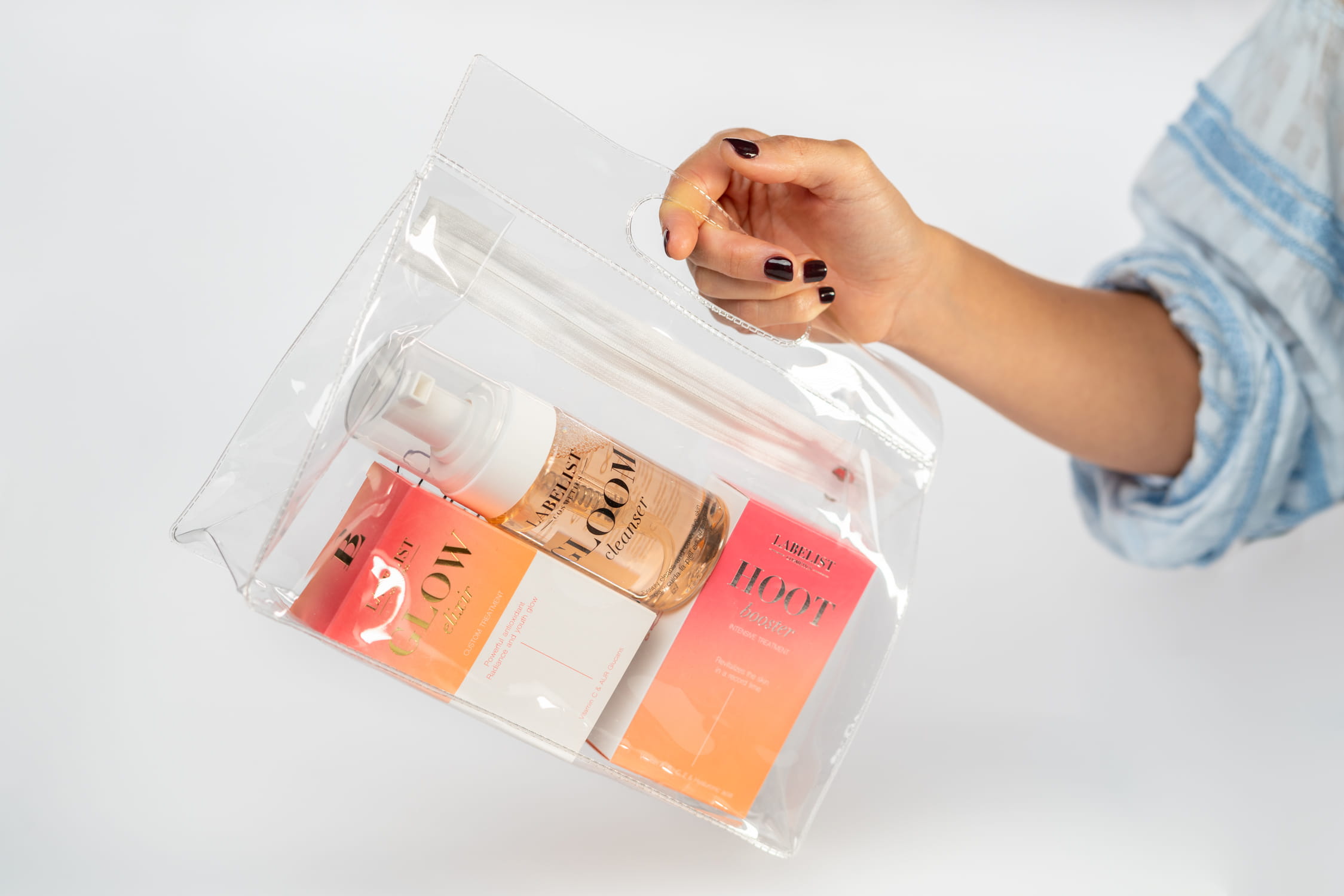Sensitive skincare

Sensitive skin is a type of skin which reacts in an excessive way to certain mechanical, physical, chemical and intrinsic factors. The main symptoms of sensitive skin may be tension, itching, dryness, redness or even intense inflammatory reactions such as erythema or rashes.
This reactive response may vary according to seasonal changes and often worsen after exposure to dry or cold climate.
Although sensitive skin is classified as a type of skin, it is common for any kind of skin to temporarily show signs of sensitivity. In fact, according to studies, 52% of cosmetics customers interviewed said that sometimes their skin is sensitive.
Also, as time goes by and with exposure to external factors, our skin suffers a decrease in the cutaneous barrier, and this makes it more sensitive. 68% of cosmetics customers interviewed said that their skin is more sensitive than a few years ago.
Characteristics of sensitive skin
- The outer layer of the skin is thinner
- It is less hydrated
- Sebum concentration is also lower
- It has a higher pH level than usual
- Microcirculation may also be disturbed
Main causes of sensitive skin
- Greater capacity for immune response
- Decreased function of the cutaneous barrier of the skin
- Occasionally unbalanced microbiome
In addition to these causes, we can also identify some factors which influence skin sensitivity:
- Mechanic factors: hair removal, shaving…
- Physical factors: sun, temperature, microbes, humidity or the use of a mask
- Chemical factors: acids such as glycolic acid or retinoic acid
- Intrinsic factors: immune response
Pollution and blue light, factors which is commonly discussed, affect the integrity of the skin barrier and speed up ageing, however it has not been verified whether they contribute to skin sensitivity.
Dermo-cosmetic advice for caring for sensitive skin
- Avoid conventional detergents and soaps.
- Avoid perfumes or try to use perfumed products with no allergens.
- Use natural cleansers and use them with lukewarm water instead of hot water.
- Moisturise your skin with calming ingredients and those which enhance the cutaneous barrier. Sometimes, if your skin is very sensitive, it is advisable to avoid watery cosmetic and only use calming oils.
- Clean your skin with non-aggressive surfactants.
- Keep ingredients which are good for sensitive skin in mind: panthenol, niacinamide, allantoin, oats and aloe vera.

Facial routine for sensitive skin
Sensitive skin must be treatment using cosmetics designed specifically for this kind of skin. Where appropriate, it is very important to reinforce the cutaneous barrier by hydrating it, nourishing it and applying calming treatments.
At Labelist Cosmetics, we recommend that you plan your facial routine according to your skin type.
Cleansing once per day
Start with facial cleansing to get rid of impurities, but it is best to do so carefully to avoid damaging the skin.
Osmolyte cleanser is our facial cleanser enriched with aloe vera (Aloe Barbadensis) and betaine. Its use is recommended even for the most sensitive skin. It has a reduced percentage of mild surfactants for better tolerability.
Daily hydration
After cleansing,the next step is moisturisation. We cannot use aggressive cosmetics which mistreat the skin for sensitive skin. If one treatment had to be selected for this type of skin, it would be a product that moisturises and reinforces the skin barrier to make it less reactive.
HA + B5 Serum improves the skin’s texture, leaving it smooth, firm and supple. Thanks to its formula enriched with panthenol and aloe vera (Aloe Barbadensis), it has calming, regenerating and antioxidant properties. In addition, the stratum corneum is reinforced for a more protected skin.
Having sensitive skin should be no problem at all! Everyone’s skin is unique and beautiful. What matters most is caring for it and using the best products for it.
More to discover

Exosomes in cosmetics: a further step towards intelligent skin care
Biomedicine has shown that exosomes can regenerate tissues, modulate inflammation and even reverse cellular aging. Today, that knowledge lands in cosmetics to transform daily skin

How to Start Using Retinol Without Irritation: Complete Guide
Why Is Retinol so Popular? Retinol is one of the most effective skincare actives, known for its ability to reduce wrinkles, improve texture, and treat
Do you want to be an international distributor of Labelist Cosmetics®?




